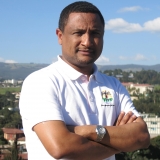Renewable natural resources such as forests, fisheries, grazing lands, soils, groundwater, etc, most of which fall under the category of common pool resources, constitute a significant part of our planet. Common property resources constitute important sources of livelihoods to many people in developing countries including timber, fuelwood, grazing, irrigation water, and domestic water.
Though renewable in the sense that they can be replenished through natural/biological means, these resources are depleted if use exceeds the maximum sustainable yield over extended period of time. On the other hand, common pools are resources suited for joint-use arrangements. The fact that these goods are shared between generations and their life span exceeds the membership span of the current (joint) users makes the allocation of common property resources an interesting inter-temporal and intergenerational subject of inquiry. In addition, population pressure, market and government failures, and the absence or ineffectiveness of use regulations of common property resources has resulted in severe degradation of these resources. In view of this problem, alternative options have been proposed as solutions to the problem. Some argue that the solution is to assign private property rights; others argue in favour of imposition and enforcement of use rules by external enforcers such as the government, etc. But, privatization may not be consistent with common property resources. That is, incentives for care and protection inherent to private property regimes may be lacking. Nor does the state (property) alone solve the problem. Rather, appropriately designed common property regimes might better sustain these natural resources and prevent the tragedy from occurring. However, there are few examples of long-enduring, sustainable local common property resource systems. Indeed, developing a coherent theory of collective action related to the use of CPRs has proved to be a real challenge. But, it is argued that localized CPR systems can be durable and sustainable especially if established and governed by local people who depend on the common property resources. However, still little evidence exists in this regard. This proposal is the first part of a bigger research project that aims at understanding the role of local institutions in the sustainable management of common property resources in Ethiopia. The objective of this proposal is to collect and organize the required baseline data about local institutions in Ethiopia, and present a review paper that links local institutions and selected common property resources in the country. These outputs will then be used as key stepping points to undergo rigorous experimental and econometric work that explores the mechanism in which different local institutions relate with the efficient management of common property resources such forests and water points.


